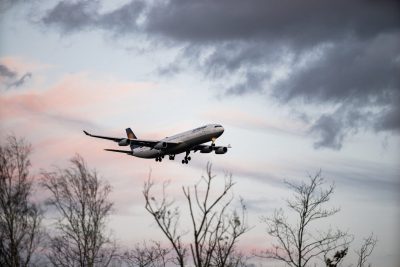By Tanisha Bhat and Sangmin Song
Boston University International Students & Scholars Office sent an email Dec. 7 warning students of possible complications to international travel during winter break, stating they “may be required to take a leave of absence” if they are not able to return by the beginning of the Spring semester.
Some international students said they chose not to return home over Winter Intersession after receiving the email, while others worry taking a leave of absence might derail their studies.

Many added they wonder why remote learning options are not being offered.
The email — sent out the day after applications for Intersession Break Housing had already closed — stated new COVID-19 variants complicate travel to other countries as many are changing vaccination, quarantine and testing requirements.
“The U.S. has recently restricted nonimmigrant entry from eight countries in Africa and may add new countries without advance warning,” the email stated. “Other countries are taking similar measures, flights are being cancelled and visa processing remains slow and unpredictable.”
The office urged students in the email to acquire reentry documentation as soon as possible and to review the ISSO Travel Advisory for their latest updates to travel restrictions.
Jeanne Kelley, managing director of ISSO, said the intention of the email was to remind international students that traveling during the pandemic is still very “complicated.”
“We’re hoping that students will be assessing the risks of travel and making thoughtful travel decisions, so that they don’t risk not being able to be back in time for the Spring semester,” she said.
Kelley said the Global Programs Office, in partnership with the Dean of Students’ office, will create social media groups and put together a “DIY Winter Break Package” for students remaining on-campus during the Winter Intersession.
Seungju Lim, a sophomore in the Wheelock College of Education and Human Development who lives in China and Korea, said she delayed her initial flight back to South Korea following the global increase of Omicron variant cases.
“When I booked my flight to Boston, I also booked a flight going back to Korea, but due to COVID and the new variant, I had to delay the flight to the summer, hoping that it will get better during summer,” she said.
Manind Gera, a first-year graduate student in the Graduate School of Arts and Sciences who is from India, said his initial plans relied on BU reintroducing the Learn from Anywhere model — which offered both in-person and remote learning options for students throughout the 2020-2021 academic year — in case traveling back to Boston from India became difficult.
“But then the ISSO sent out the email that there wouldn’t be any LfA next semester,” he said. “That changed my plans because if there’s no LfA, then I would be forced to take a leave of absence and that could tamper with my future.”
Students showed concern about ISSO’s statement, saying they felt the school should provide other options rather than only recommending to take a leave of absence.
“I thought to some extent, it might make sense for the University to highly encourage students to take a leave of absence but I feel like it shouldn’t be the only option because BU did online schooling during 2020,” Lim said.
Kelley said she believes BU isn’t offering an alternative to taking a leave of absence because the school wants to continue in-person learning.
“It is my understanding that when the University decided to return to in-person instruction for the Fall, that it’s likely that they’re going to continue in-person instruction in the Spring,” she said.
BU spokesperson Colin Riley did not respond to multiple requests for comment.
Brynjolfur Brynjolfsson, a freshman in Questrom School of Business who is from Iceland, said he felt taking a leave of absence was too strict for international students, adding his plans still include him returning to Iceland.
“It should only be natural that I get the freedom to go back and visit my family, and of course, for me, family is the most important thing so that’s why I chose to go back home,” he said. “I don’t want to be stuck here for four years.”
Kelley said it is her understanding that Residence Life is helping students who choose to remain on-campus over winter break find temporary housing.
Before applications closed on Dec. 6, Intersession Break Housing was available to current residential students to stay in the U.S. — arrangements would be made with a local hotel at a subsidized rate. However, students said they doubt this service would’ve been helpful for them.
“No meal provided, no nothing, and there’s no kitchen in the hotel,” Lim said. “What am I supposed to eat?… they’re literally providing a room and a bed.”
Although he understands the importance of keeping classes in person, Gera said he still believes LfA should be offered in the case “flights are closed and people can not come back.”
Brynjolfsson said BU should offer better support for international students.
“They have to provide the service for us,” he said. “We don’t have to make it easier for them and we have to take a break. They should be working at full capacity to satisfy the students.”